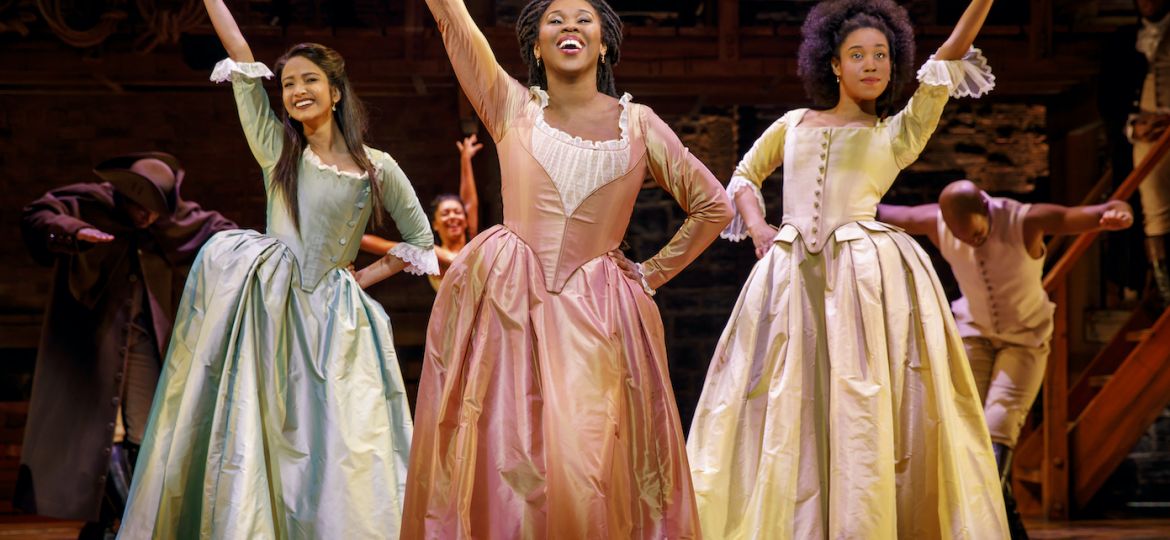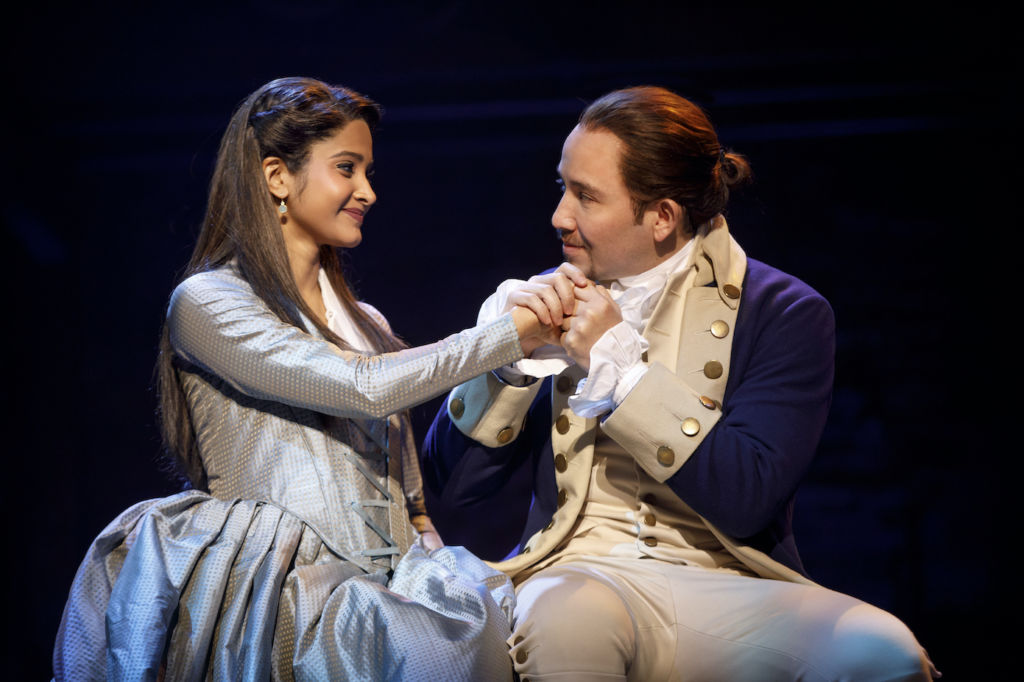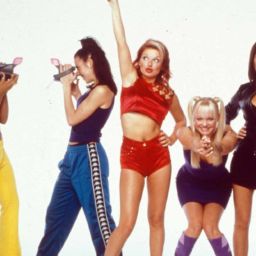
The women of Hamilton have sparked almost as much debate as the show’s mile-a-minute cabinet rap battles. Are the rebellious and relentless Schuyler sisters smart and savvy schemers who are afforded an “almost” feminist ending, as New Yorker writer Michael Shulman asserts? Or are the female characters the weakest part of the show—mere “plot points in silk,” as Hilton Als, another New Yorker writer, concludes?
We asked two local theater gurus, Phoenix Theatre artistic manager, actress, and playwright Chelsea Anderson, and Fonseca Theatre Company associate producing director Jordan Flores Schwartz, to weigh in on the women of Hamilton, which makes its Indianapolis run through December 29 at Old National Centre.
What does feminism mean to you?
Jordan: Feminism means all genders have access to a seat at the table.
Chelsea: It’s providing equitable opportunities for women, men, and our nonbinary friends to have just as much voice as the people who traditionally have the say.
“…they’re not sappy, they’re not one-dimensional, they’re not reduced to only being interested in getting the guy.”
Is Hamilton feminist?
Chelsea: Well, I don’t think that’s the purpose of the show. That doesn’t make it anti-feminist, but I don’t think it’s written to be a feminist production.
Jordan: Are you familiar with the Bechdel test? It came from an Alison Bechdel cartoon, and it qualifies a performance as feminist based on whether two women have a conversation about something other than a man. And, with the exception of one or two lines in the song where the Schuyler sisters are talking about the revolution, Hamilton does not pass that test. But that’s not really the goal of the piece. The focus is on racial diversity—it focuses on giving the founding story back to the real America.
Does the musical positively portray women?
Jordan: The characters of Maria Reynolds (Alexander Hamilton’s mistress) and Peggy could be beefed up a little more. With Maria Reynolds, it becomes more about the tension between Hamilton and her husband and the exposure of the affair. And Peggy just gets shuffled into the background when you get to the love triangle between Hamilton and Angelica and Eliza. But this is a historical piece, and you have to take into consideration that Lin-Manuel Miranda was doing his best to portray history.
Chelsea: I think it tells the story as truthfully as possible and allows those women who do have voices to be powerful and interesting and influential.

Is it problematic that the musical’s women are only presented in relation to Alexander Hamilton?
Chelsea: I think it is. That said, they’re not sappy, they’re not one-dimensional, they’re not reduced to only being interested in getting the guy. The production’s creators have said they cast women in the chorus, and as soldiers, and in all these other roles to show that presence is available and meaningful in other ways.
Jordan: The women are definitely tools for telling Hamilton’s story. In Eliza’s case, it’s about how she factors into Hamilton’s legacy, more so than about her own perspective. Same with Angelica. But that’s fine because the goal of the show is to tell the story of Alexander Hamilton.
Does Angelica undermine her role as an intellectual by spending most of the show pining after Hamilton?
Chelsea: Well, I would argue that that’s an issue with the storytelling. I think if you don’t want a four-hour show, you can’t really have everybody’s story told. It’s not meant to be this woman’s story. So I don’t think that it diminishes her role as a smart character.
Jordan: What’s groundbreaking about Angelica’s character is that even though she hasn’t necessarily found a way to be an active participant in the political process, she has her ear to the ground and has a much deeper insight into the politics of the formation of the country than the average woman. For instance, when she comes to visit, Hamilton turns to her to explain to Eliza why he can’t go away for the summer.
Does the musical let Hamilton off the hook for adultery by portraying Maria Reynolds as a seductress?
Jordan: The show does put a lot of the blame on her for the affair, but that makes sense. As a politician, Hamilton was trying to protect his reputation—and there could have been a little more discussion of that.
Chelsea: Clearly, our title character has lost quite a lot by revealing he was in that relationship. But it parallels how women at that time were treated, so I don’t think it’s necessarily diminishing — it’s an accurate portrayal of how he saw this woman as less than.
How would you make the show feminist?
Chelsea: Tell it from the point of view of the women. What happens to them when the men go off to make the decisions on their behalf?
Jordan: I’d give the female characters a voice and dig into the historical record to make sure we hear their opinions about the creation of the country. I’d focus on their accomplishments—Eliza’s philanthropy, Angelica’s travels, finding out more about Peggy. And I’d dig into Maria Reynolds as a character and think about what could’ve sparked that affair.
Anything else you want to add?
Chelsea: The fact that all three women in the original Broadway production are women of color showcases that there’s more to women than being pretty, than being blond. I think that’s wonderful.
Jordan: Hamilton is about race and immigration and giving the story back to America. It’s made a huge impact on the way people in the industry think about casting and representation. And I think it’s important to give the show credit for that.
Sarah Bahr has never seen Hamilton — at least, not in person. She hopes to fix that soon (#LotteryForDays).










